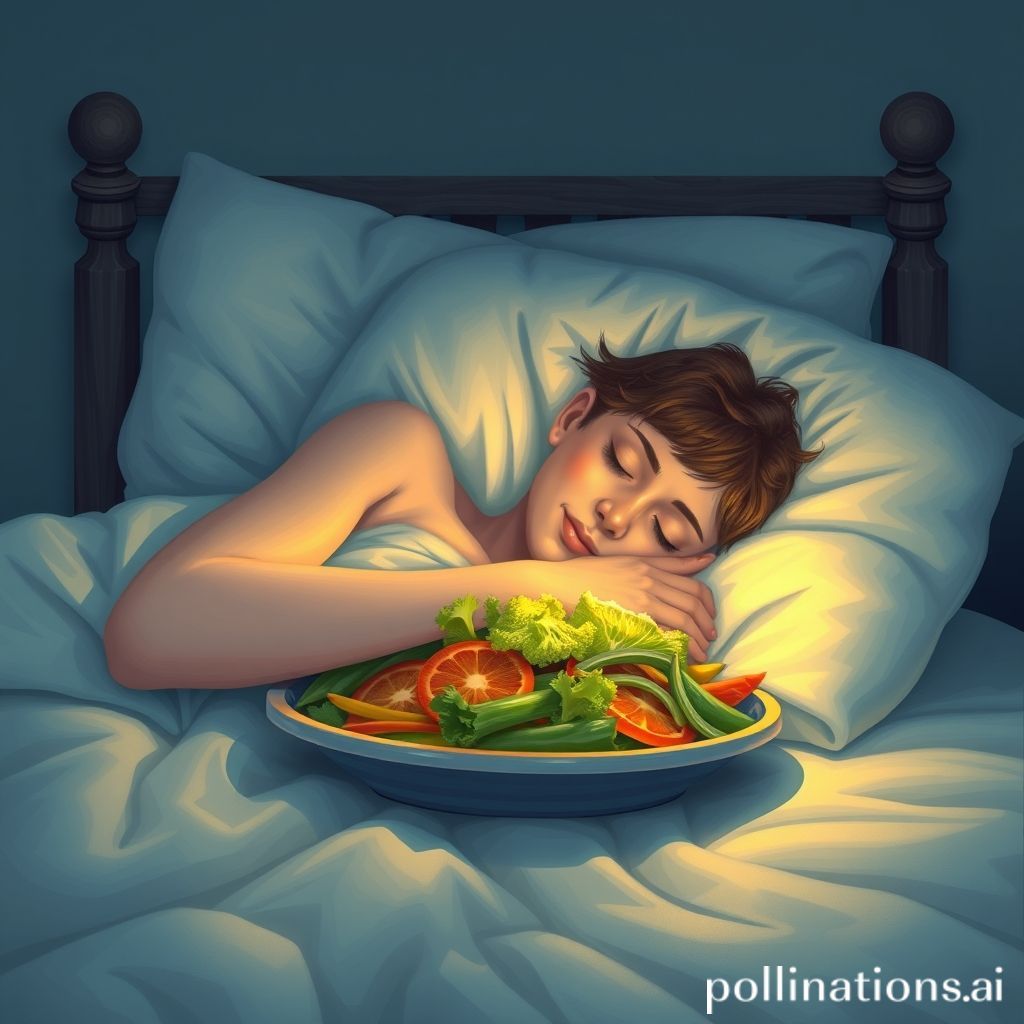
Scientists find ‘remarkable’ diet to defeat insomnia within 24 hours
Finally, Sleep Soundly Tonight: The 24-Hour Insomnia Buster Diet?
Hey there, fellow sleep strugglers! If you're anything like me, the quest for a good night's sleep can feel like chasing a mythical creature. Tossing, turning, counting sheep until you're practically running a farm in your head sound familiar? Well, recent buzz in the scientific community has me (and hopefully you!) incredibly excited. Researchers are talking about a "remarkable" diet that could potentially defeat insomnia within just 24 hours. Yes, you read that right.
Of course, my skepticism antennae were instantly raised. Can a simple diet really be the key to unlocking restful sleep? I decided to dive deep into the research and separate fact from fiction. Let's explore what this diet entails and whether it might be the answer to our collective sleepless nights.
The Diet's Secret Weapon: Tryptophan and Melatonin Boosting Foods
The core principle behind this potential insomnia-busting diet revolves around naturally increasing the levels of tryptophan and melatonin in the body. These two powerhouses play critical roles in regulating our sleep-wake cycle. Tryptophan is an amino acid that serves as a precursor to serotonin, a neurotransmitter associated with relaxation and mood regulation. Serotonin, in turn, is converted into melatonin, the hormone that governs sleepiness.
The diet emphasizes consuming foods rich in tryptophan and those that facilitate its conversion to serotonin and melatonin. It also focuses on avoiding foods that can disrupt sleep.
What's on the Menu? The Insomnia-Fighting Food List
So, what exactly should you be eating to potentially conquer insomnia in 24 hours? Here's a breakdown:
Tryptophan-Rich Foods: Think turkey (yes, there's a reason you feel sleepy after Thanksgiving!), chicken, eggs, nuts (especially almonds and walnuts), seeds (like pumpkin and sunflower), tofu, and salmon.
Carbohydrates (the right kind): Complex carbohydrates like whole grains, sweet potatoes, and fruits help transport tryptophan across the blood-brain barrier, making it more available for serotonin production.
Magnesium-Rich Foods: Magnesium helps to relax muscles and calm the nervous system. Include leafy greens, avocados, bananas, and dark chocolate (yes, you read that right!).
Foods High in Melatonin: Cherries (especially tart cherries), kiwis, and grapes naturally contain melatonin.
Hydration is Key: Dehydration can disrupt sleep. Aim for plenty of water throughout the day.
Foods to Avoid: The Sleep Saboteurs
Just as important as what you eat is what you don't eat. Certain foods and beverages can actively work against your sleep efforts:
Caffeine: This one is a no-brainer. Avoid coffee, tea, energy drinks, and even chocolate close to bedtime.
Alcohol: While alcohol might initially make you feel drowsy, it disrupts sleep later in the night.
Sugary Foods: These can cause blood sugar spikes and crashes, leading to restless sleep.
Processed Foods: Often contain hidden sugars, unhealthy fats, and additives that can interfere with sleep.
Heavy, Fatty Meals: These can be difficult to digest and keep you awake.
Putting it All Together: A Sample 24-Hour Meal Plan
To give you a clearer picture, here's a sample meal plan incorporating the principles of this insomnia-fighting diet:
Breakfast: Oatmeal with berries and almonds.
Lunch: Grilled chicken salad with leafy greens, avocado, and sunflower seeds.
Dinner: Baked salmon with sweet potato and steamed broccoli.
Snacks: A handful of walnuts, a banana, or a small bowl of tart cherries.
Important Considerations and Caveats
Before you overhaul your diet completely, it's crucial to remember that everyone is different. What works for one person may not work for another. It's also important to consult with your doctor or a registered dietitian before making significant dietary changes, especially if you have any underlying health conditions.
The 24-hour claim, while exciting, should be viewed with cautious optimism. While some people might experience noticeable improvements in their sleep within a day, others may require more time and a more comprehensive approach. Factors like stress, underlying medical conditions, and lifestyle habits can also play a significant role in sleep quality.
Comparing to Other Insomnia Solutions
| Solution | Pros | Cons |
| : | : | : |
| 24-Hour Diet | Natural, focuses on whole foods, potential for quick results | May not work for everyone, requires dietary changes, not a long-term solution |
| Sleep Medication | Can provide immediate relief | Potential side effects, can be habit-forming, doesn't address underlying causes |
| Cognitive Behavioral Therapy for Insomnia (CBT-I) | Addresses underlying thoughts and behaviors, long-term solution | Requires commitment and time, may not provide immediate relief |
| Sleep Hygiene Practices | Simple, cost-effective | May not be sufficient for severe insomnia |
My Thoughts and a Word of Encouragement
I'm personally intrigued by the potential of this diet. I've always believed in the power of food to heal and nourish our bodies. While I'm not expecting a miracle cure in 24 hours, I'm willing to give it a try and see if it can help improve my sleep quality.
Ultimately, the quest for better sleep is a personal journey. There's no one-size-fits-all solution. This diet might be a helpful tool, but it's important to remember that it's just one piece of the puzzle. Experiment, listen to your body, and don't be afraid to seek professional help if needed. Sweet dreams are possible.
Sources
[insert reputable sources on tryptophan, melatonin, and sleep here. Examples include: National Sleep Foundation, Mayo Clinic, National Institutes of Health]
Comments
Post a Comment